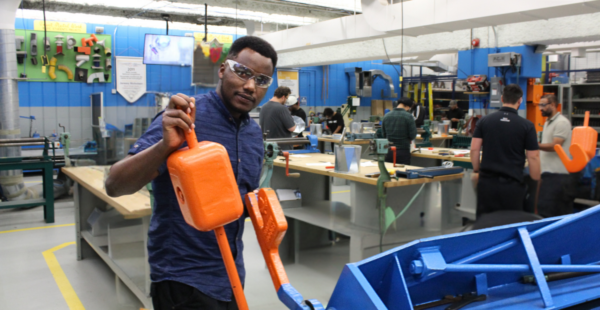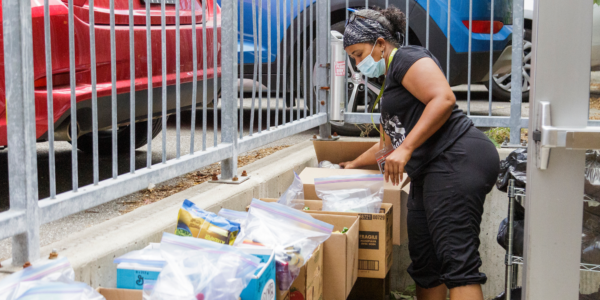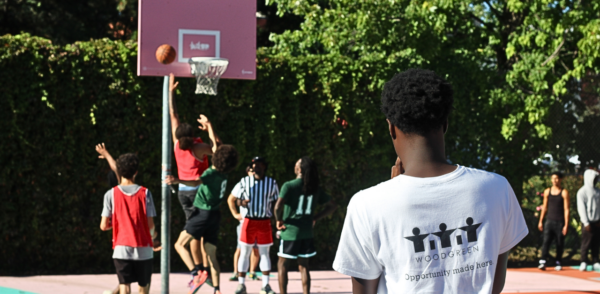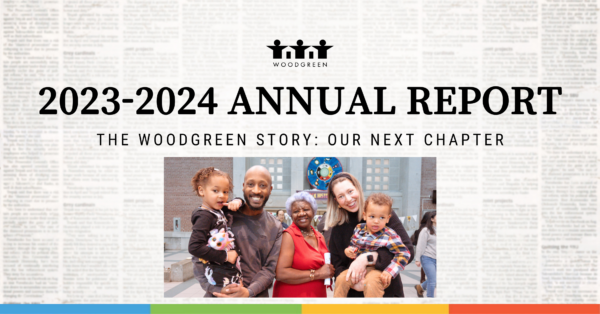Odds are that one of the two people sitting next to you on the subway has a life story that begins in a country a long way from here. Some sought out a new life in Canada, while others, like Mohammad Hotak, came as a refugee in search of safety. Now he’s committed to serving the city that gave him refuge by maximizing the potential of the newcomers arriving after him.
“I love Canada,” says Hotak, “I love the diversity, the different cultures and that I can speak freely. There aren’t many countries that truly have that.”
RELATED STORIES:
- Welcoming a new life in Canada and finding belonging with WoodGreen
- Newcomer professionals get a crash course in Canadian corporate culture
Resisting corruption came at a cost
Hotak was born and raised in Afghanistan; a country he loved and wanted to see flourish and thrive. It’s why, after the fall of the Taliban, the trained medical doctor served as a Director of General of Planning & Policy with the Afghanistan government.
“Since I was a child, I dreamt of a responsible, equitable system in my country that everyone would benefit from.”

But in 2015, as ISIS began to have more influence in the region, Hotak’s attempts at reform and his refusal to engage in corrupt hiring and procurement practices did not sit well with some powerful people. Hotak believed in transparency and fairness, so he resisted the growing pressure.
That is, until he returned home one night to find his pregnant wife and two young children hiding in a bathroom after their home had been sprayed by bullets. In the face of such violence, he knew he could not win and that it was time to flee.
“I had heard Canada was more diverse than many countries,” recalls Hotak, “and its government is more multicultural. So that’s why I came here.”
Refugee experience surprises some Canadians
Canada granted the family refugee asylum, and the following eight years have seen them experience the highs and lows many refugees in the country face. In Afghanistan, Hotak was a doctor of internal medicine. His wife was an experienced OB/GYN who regularly delivered 1,000 babies a month and owned her own clinic. Neither has been able to practice medicine in Ontario. Mohammad, once an influential government employee, provided for his family any way he could; working as a plumber, roofer and call centre employee.
“One night I was delivering four large pizzas to a big house. On the door, it said the man was a medical doctor. I told him, ‘Me too!’ The man’s jaw dropped,” says 46-year-old Hotak.
He says the Canadian doctor couldn’t understand why Hotak was delivering pizzas and not working in medicine. That doctor gave Hotak some advice: find something else to do; getting medically certified in Canada is too complicated.
Hotak took that advice and completed a degree in Human Resources, Diversity & Inclusion followed by a Master’s Degree in Health Administration.
Helping refugees navigate a path to success
It is this breadth of experience that makes him perfect for the role of Senior Manager of Newcomer Wellness at WoodGreen.

“My favourite part of my job is helping WoodGreen design targeted, focused and useful programs that will actually help newcomers,” smiles Hotak, now a father of four. “I’ve been through it, and I want to design change so [newcomers] don’t have some of the challenges I did.”
Part of Hotak’s role is to ensure those granted asylum in Canada are able to live their best lives, which, for him, means being able to work and contribute to Canadian society. He says many refugees have invaluable skills and experience that can enrich and improve their communities.
One in six newcomers is a refugee
2022 was a record-breaking year for Canada in terms of population growth, fuelled almost entirely (96%) by international migration. One out of every six newcomers to the country was a resettled refugee or protected person, totalling more than 75,000 last year alone. Ensuring those newcomers are equipped with the tools they need to build a successful new life in Canada is a key component of the work WoodGreen Community Services does in Toronto.
“I’m also leading a group of 24 immigration agencies (through the Toronto West Local Immigration Partnership) to work together to improve services for newcomers. Services that actually help.”
Hotak has helped establish an Afghan Advisory Group, designing programs targeted at many of the 31,300 Afghan refugees who have arrived in Canada since the Taliban resumed control of their country in August 2021. Canada has committed to welcoming 40,000 vulnerable Afghans by year’s end.
Wherever Mohammad Hotak has lived, whatever country he has called home, he has been passionate about serving his community and using his knowledge and dedication to make life more fair and equitable for all his neighbours. First in Afghanistan, now in Canada. And our WoodGreen workplace, community and city are all the better for having him here.
Are you a refugee in Canada who is looking for support? Visit our Newcomer Services page to learn more about how we can help you.





